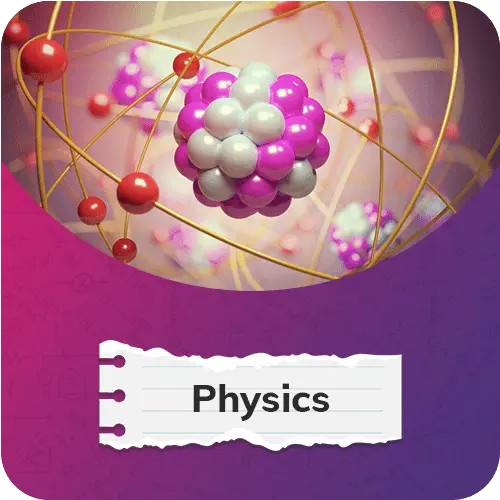
While Physics is not taught as a standalone subject at this level, its foundational principles are introduced under General Science. Students explore simple machines, gravity, push and pull, light, sound, and magnets through hands-on activities and visual aids. The objective is to foster observational skills and wonder about the physical world.
Physics emerges more distinctly as students learn about motion, forces, energy types and transformations, heat, light, sound, and basic electricity. These concepts are supported by lab activities and inquiry-based projects. Emphasis is placed on using measurement tools, understanding units, and conducting simple experiments.
Physics becomes more structured and mathematical. Core topics include Newton's laws of motion, work and energy, power, thermal properties, reflection and refraction, wave phenomena, electricity, magnetism, and pressure. Students begin interpreting data, applying formulas, and learning graphical analysis. Critical thinking and scientific reporting are introduced.
At this level, Physics is offered as an advanced elective subject and is integral to many academic streams. Key units cover mechanics, kinematics, thermodynamics, electrostatics, current electricity, electromagnetic induction, optics, dual nature of matter and radiation, atomic and nuclear physics, and modern physics. Students engage in deeper mathematical modeling, lab-based practicals, derivations, and research-based projects.
Students opting for Physics as part of their A-Level, IBDP, or AP curriculum study a rigorous syllabus. This includes core physics principles along with optional modules like astrophysics, engineering physics, medical physics, or environmental physics. They conduct detailed investigations, formulate IA reports, and develop extended essays. Students may also explore quantum physics and relativity, supported by calculus and advanced laboratory skills.
Physics interweaves naturally with Mathematics (formulas, graphs, vectors), Chemistry (atomic models, energy levels), Biology (biomechanics, neurophysics), Geography (climate physics, geophysics), and Computer Science (coding simulations, AI algorithms). The subject builds logical and computational thinking, useful in interdisciplinary innovations such as biomedical devices, aerospace design, and renewable energy systems.
Physics is more than a subject—it’s a way of understanding and interacting with the universe. By nurturing a student's ability to ask questions, seek explanations, and test hypotheses, Physics lays the foundation for scientific inquiry, innovation, and technological advancement. Through a well-sequenced and engaging curriculum, Physics education prepares students to navigate and contribute meaningfully to a complex, dynamic, and technologically-driven world.